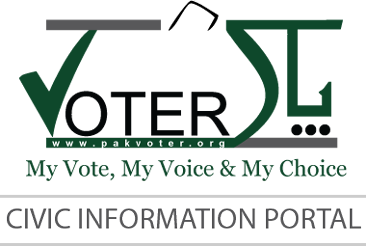Media, plural of Medium, is a Latin word which literally means an intervening agency, means or instrument used to store and deliver information or data. In general, it is termed as a means of general communication, information or entertainment covering multiple modes such as press, photography, advertising, cinema, broadcasting (radio and television) and publishing. The term Media was first applied to newspapers about two centuries ago and since then it has also obtained a political connotation covering all mediums used to communicate political information to cross section of people that reaches and influences them as well. Initially covering newspapers and magazines only as print media, it expanded its scope to radio and television as electronic media while social media is the latest addition to it. As it greatly influences the opinion building of public, it is also termed as the fourth pillar of state. Media plays an indispensable role in effective functioning of a democracy. In electoral context, its importance as a watchdog is extremely valuable. It helps the voters to make their elected representatives accountable by highlighting their successes and failures during their tenures. It makes a critical analysis of policies of governments to help them perform better or revise the policies adversely affecting the public or national interest. It helps to make a comparative analysis of electoral practices and electoral bodies’ managements highlighting successful models across the world to help adopt international best practices and policies. This makes the electoral process transparent, thus restoring people’s confidence in the very foundation of a political process and the system. In short, Media educates the voters to help them exercise their democratic rights on merit by making an appropriate choice of a candidate or party in the electoral process. The Media contributes in this process by communicating to the voters the right information about performance, education, experience, achievements, future agendas and previous role of proposed candidates, political parties, governance systems and procedures to help the voters make a sound decision as to whom they should surrender their political will for best pursuit of national goals. However, in this situation, a great burden and responsibility lies on Media’s shoulders that they should remain neutral and above all political affiliations while reporting the election activities. A professional journalist or media house needs to be above board to convey a report or analysis by presenting all existing dimensions and opinions about the parties and individual candidates with minimum possible bias so that voters get more educated to vote for the best candidate or party in the run. The present trend wherein the journalists, particularly the electronic media anchors, have transformed their roles more into analysts with focus on enforcing their own opinions and wanting their audience to follow their preferences is a dangerous trend of imposing one’s thought process on others which can simply be termed as Media dictatorship. A more dangerous trend is the misuse of media power by certain individuals in the name of freedom of expression leading to blackmailing of certain individuals to cover their misdeeds or undue promotion of others to help them elevate their position in corridors of political power houses to get undue benefits in return. Some individuals in Media resort to such short term individual gains at the expense of their institution for earning favors from those in authority due to the powers which they enjoy or are likely to enjoy in future, thus promoting corruption and nepotism in the political system right at the time of elections. A more unregulated face of Media is the new trend of social media where anyone can express any comments which are sometimes in total disregard of the moral, legal or social norms of a civilized society and may undermine the political future of a political contestant creating bias against him. The need, however, is of an effective code of conduct for Media and a strong regulator so that responsible reporting is promoted and false, malicious and malafide content is filtered out with the realization that such a content can lead to their accountability and cost them heavily as professional mediapersons.


